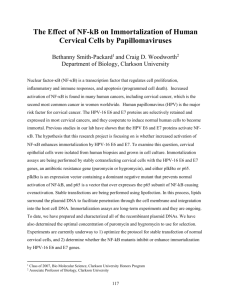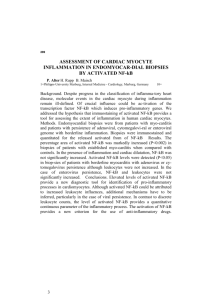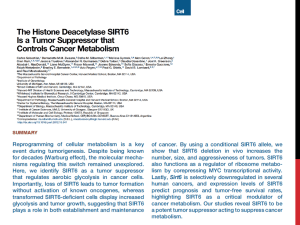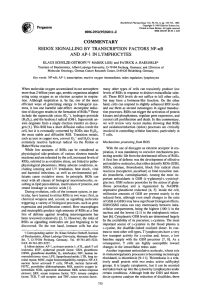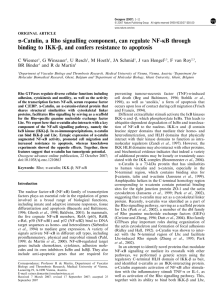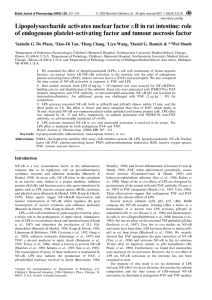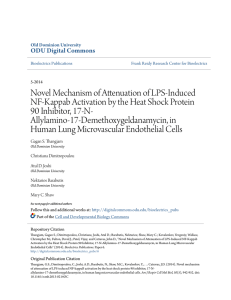Changes in Reactive oxygen as a mechanism for NF-kb Activation
advertisement
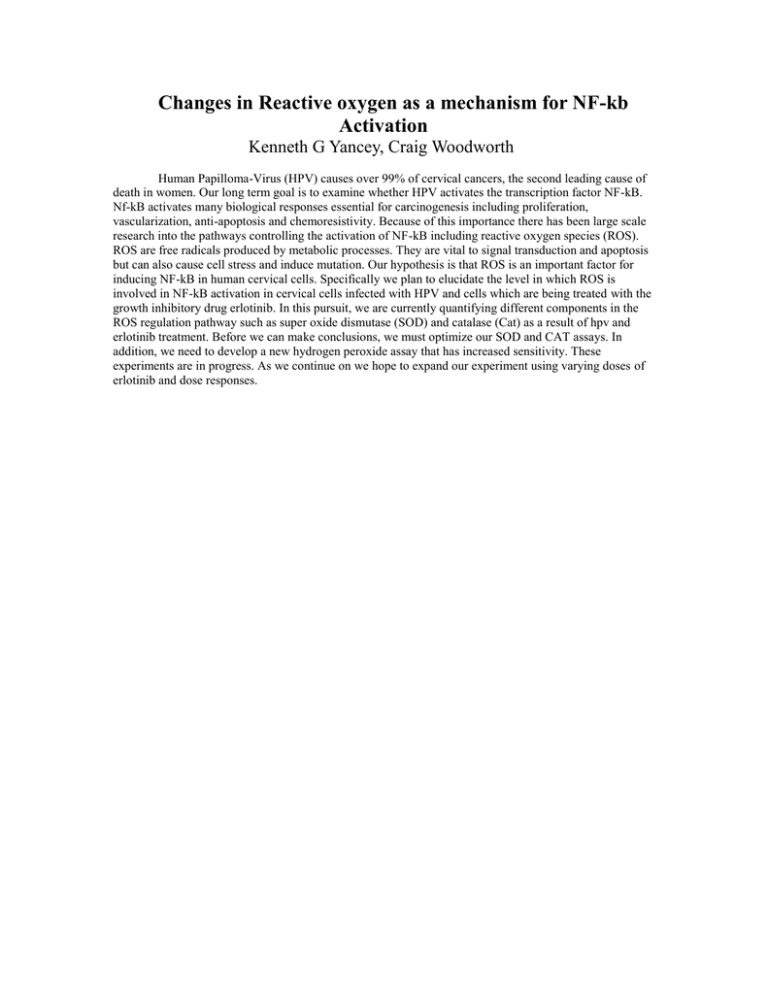
Changes in Reactive oxygen as a mechanism for NF-kb Activation Kenneth G Yancey, Craig Woodworth Human Papilloma-Virus (HPV) causes over 99% of cervical cancers, the second leading cause of death in women. Our long term goal is to examine whether HPV activates the transcription factor NF-kB. Nf-kB activates many biological responses essential for carcinogenesis including proliferation, vascularization, anti-apoptosis and chemoresistivity. Because of this importance there has been large scale research into the pathways controlling the activation of NF-kB including reactive oxygen species (ROS). ROS are free radicals produced by metabolic processes. They are vital to signal transduction and apoptosis but can also cause cell stress and induce mutation. Our hypothesis is that ROS is an important factor for inducing NF-kB in human cervical cells. Specifically we plan to elucidate the level in which ROS is involved in NF-kB activation in cervical cells infected with HPV and cells which are being treated with the growth inhibitory drug erlotinib. In this pursuit, we are currently quantifying different components in the ROS regulation pathway such as super oxide dismutase (SOD) and catalase (Cat) as a result of hpv and erlotinib treatment. Before we can make conclusions, we must optimize our SOD and CAT assays. In addition, we need to develop a new hydrogen peroxide assay that has increased sensitivity. These experiments are in progress. As we continue on we hope to expand our experiment using varying doses of erlotinib and dose responses.

